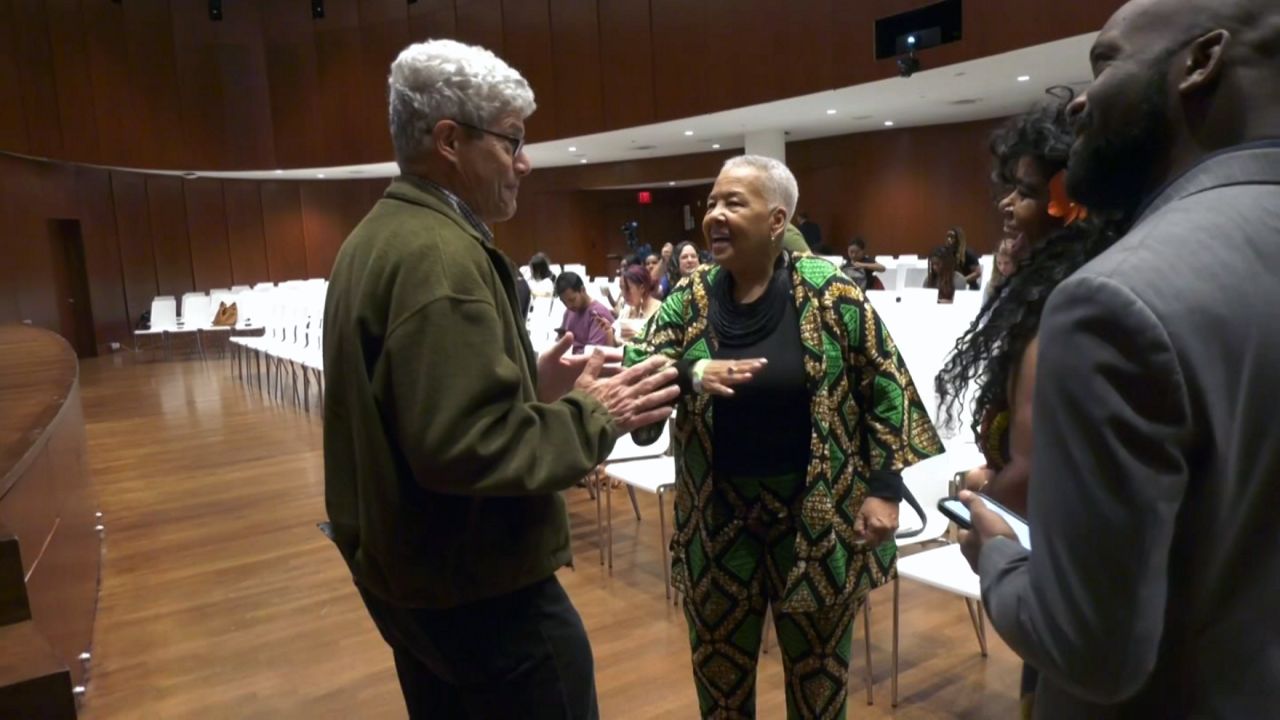Community organizers, researchers and public servants met at Columbia University Sunday to tackle the problem of climate change, kicking off the events of Climate Week NYC with the BIPOC Climate Justice Summit at Columbia University.
“We need an energy shift in terms of how we think of our possibilities, even in this moment,” said Abdul Dosunmu of Donors of Color Network.
What You Need To Know
- The BIPOC Climate Justice Summit at Columbia University focused on how to advance climate justice and on how climate change disproportionately impacts low-income communities and communities of color worldwide
- The Trump administration has been working to reverse climate change policies of previous administrations
- Most of the Climate Week events are free and open to the public
Climate Week NYC organizers say this year’s week-long event is the biggest one yet. The week includes one thousand events spread out across the city intended to energize the movement for global climate action.
Sunday’s summit focused on how to advance climate justice, the idea that climate change disproportionately impacts low-income communities and communities of color worldwide.
“Climate justice means centering justice within the climate environmental movement and we do know that the people that have contributed least to the problem of climate change are the most vulnerable and will suffer the most,” said Felicia Davis, the founder of the HBCU Green Fund, one of the hosts of the summit.
This comes as the Trump administration has been working to reverse climate change policies of previous administrations.
“Right now, we are seeing policy changes that are moving us back,” said summit attendee K.D. Chavez. “Bringing us to a time when there were no regulations.”
In recent months, the EPA has pushed to end mandatory reporting of greenhouse emissions, stopped renewable energy projects, phased out tax credits for wind and solar development, and reversed limits on oil drilling in Alaska.
The Trump administration has said it is “committed to unleashing American energy,” making it affordable and reliable.
“On a very human level, it’s obviously very scary. These are things that I think a lot of people really worked hard to get under the Biden administration. But I think that now is the time for people to come together and mobilize and not be scared because I think we have a lot of power,” said Leel Dias, a Columbia University student and one of the organizers of the summit.
“The world is moving beyond U.S. leadership, or the lack thereof,” Davis said. “Young people are not waiting. The world is not waiting.”
The week coincides with the United Nations General Assembly, bringing together international voices to tackle solutions to climate change. Most of the more than 1000 events are free and open to the public. For more information head to climateweeknyc.org.
